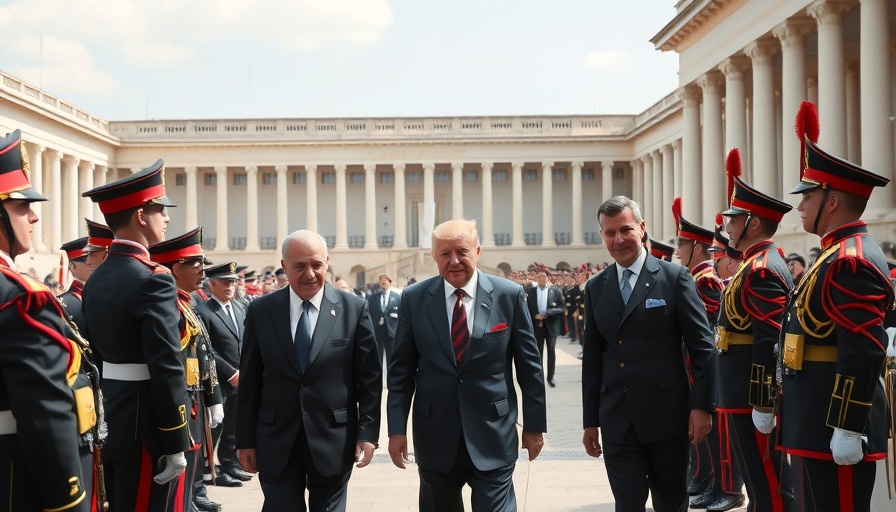
The Upcoming Gulf-US Summit: What to Expect
As the world watches, Riyadh is set to host a crucial Gulf-US summit next week. With tensions rising in the region, particularly due to the ongoing Israel-Gaza conflict, this summit promises to be a significant platform for addressing pressing diplomatic concerns. What can we expect from this meeting? Topics on the agenda include major investments, the Abraham Accords, and trade tariffs, all of which could reshape the economic landscape of the Gulf.
The Significance of the Abraham Accords
One of the pivotal achievements in recent Middle Eastern diplomacy has been the Abraham Accords, which aimed to normalize relations between Israel and several Arab nations. While these accords marked a historical shift in regional alliances, their sustainability is now under scrutiny, particularly as conflicts have erupted again. The summit provides a vital opportunity for Gulf states and the US to reaffirm their commitments and assess the impact of these agreements in light of current events.
Investment Opportunities: A New Frontier?
In a post-pandemic world, investments in infrastructure, technology, and renewable energy have become crucial. The Gulf nations possess vast financial reserves that can catalyze growth, not just locally but globally. Leaders are likely to discuss how US companies can collaborate with Gulf states to enhance these sectors, ultimately benefiting both parties. The results of these discussions could lead to exciting new economic partnerships.
The Role of Trade Tariffs and Economic Policies
Trade tariffs have long been a contentious issue between the US and its partners. As trade dynamics change, the Gulf-US summit may address economic strategies aimed at not only mitigating existing tensions but also fostering a more cooperative trade environment. How leaders navigate these conversations will influence bilateral relations in the years to come.
Impact on Local Communities and Grassroots Initiatives
While high-level talks are essential, the effects of these discussions often trickle down to the grassroots level. Local communities in the Gulf region are keenly watching as major policies can directly impact their livelihoods, from tourism to small businesses. Grassroots initiatives play a pivotal role in fostering community resilience, and clarifying these connections during the summit could yield tangible benefits for the populations involved.
A Community Perspective on the Summit
For many individuals in the region, this summit represents not just political dialogue but a beacon of hope for a more stable future. As a storyteller invested in the community, I believe it’s essential to highlight the narratives of those whose lives are affected by these decisions. From fishermen worried about the fishing policies to tour operators anticipating an influx of visitors, everyone has a stake in the outcomes. Engaging local voices can enrich the conversation and bring forth diverse perspectives.
Conclusion: Join the Conversation!
The Gulf-US summit next week could influence the trajectory of not just international relations, but also the fabric of everyday life in the region. As we anticipate the outcomes, it’s vital to stay informed and involved. By tuning into the developments and participating in discussions, we can ensure that our communities’ voices are heard. Let us follow the summit closely and engage with our neighbors to foster a deeper understanding of its implications.
 Add Row
Add Row  Add
Add 




Write A Comment